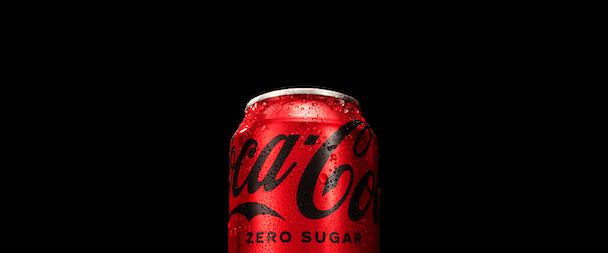The hidden benefits of Coke’s partnership with Bain and OpenAI
Coca-Cola is going all-in on AI for marketing, with a partnership with Bain designed to use OpenAI tools. What does that partnership imply for marketers using AI?

Partnerships around AI provide holistic benefits around safety and data
Coca-Cola is set to use OpenAI-derived tools, including ChatGPT and DALL-E, to completely overhaul its marketing strategy. In a deal with the consultancy Bain, the confectionary brand is looking to integrate generative AI tools into its wider marketing strategy.
Bain had announced a partnership with OpenAI specifically to use its tools for marketing earlier in the year: as of today, Coca-Cola is the first company to have engaged with Bain to begin delivering changes.
Annie Hou is SVP and global head of AI and behavioral sciences at MRM. She believes that it was an inevitability that a huge brand like Coca-Cola would be among the first to invest in a partnership like this: “For a brand like Coke to allow Open AI to do a lot of the creative and marketing processes is really forward thinking. I think there’s a lot that needs to happen with brand safety, though… only a company as big as Coke could be able to put in the investment… to put those guardrails around OpenAI.”
She states that the biggest use case for a brand like Coke here is around delivering upon personalization at scale. That is backed up by the Bain announcement, which states that the benefit for marketers is boosting turn-around time for leading product and service marketers by using the tools to” develop highly personalized ad copy, rich imagery, and targeted messaging”.
Coca-Cola is not shy about engaging with new and emerging technologies for marketing. Last year it, alongside Virtue agency, invested in NFTs that were designed to add utility to the usual collectibility of the tokens.
With OpenAI, however, the questions are less about what function the tools offer to the brand and more about issues of safety and accuracy. Hou specifically cites the “$120bn” hit taken by Google after the premature showing of its ChatGPT equivalent Bard earlier in the month as an example of what can happen when brands rush in without a solid plan around brand safety.
She also notes that issues around copyright and unauthorized use of data more widely could prevent other brands from entering the space. With StabilityAI the subject of a lawsuit by Getty Images, there are still legal issues that need to be hashed out before brands will feel confident entering the space off their own backs. To that extent, the partnership with Bain makes a lot of sense for Coca-Cola.
Cristina Lawrence, EVP of consumer and content experience at Razorfish, said: "In general, generative AI regulation for marketing is possible, but will likely depend on the pace of adoption and advancements of the generative AI tools.
“We still don’t know the full breadth of capabilities AI can and will deliver for marketing across its many potential scenarios and use cases, but depending on those results, it could be something we see in the future. For example, it would be smart for the industry to create some sort of working group or organization to standardize best practices and use cases.”
Multiple interviewees pointed out to The Drum that AI is vulnerable to manipulation, with Hou stating that if you put train it up on the internet “you get the internet out”. That has potential brand safety considerations, with Martin Lamming, marketing director for Naoris Protocol, saying: “Microsoft’s Tay AI Chatbot was corrupted and turned racist in less than a day, due to the data fed from Twitter. If any of these systems are hacked, the AI system could become biased in the information provided which could potentially influence the AI’s output, negatively impacting global economic and political events.”
Early movers
Despite those risks, there are undoubted benefits from being an early mover in the AI space - particularly for global brands like Coca-Cola. Lamming says: “Fast-tracking analysis of existing campaigns and optimizing future marketing activities using Generative AI systems, will allow marketing departments to quickly create a diverse range of customized, multi-channel content, graphics and videos, to appeal to local consumers.
“Improved production volumes of content could rapidly enhance Coca-Cola’s brand presence globally, further cementing their market share dominance over rivals, especially in territories where they may not be the market leader.”
There are also considerable benefits for consultancies like Bain and OpenAI itself. Hou points out that the data gathered through marketing activities is beneficial for training up artificial intelligence, ensuring that future iterations are even more appealing to marketers.
Other brands have also been using OpenAI and equivalents to generate creative: Martini used Midjourney to come up with sense- and ingredient-inspired visuals for a campaign in January. One of the potential issues with the use of AI for marketing is that precedent has repeatedly been set that AI-generated artwork cannot be copyrighted or credited to a human author.
Hou notes that, while the focus of the partnerships at the moment is largely that of CPMGs, there are other sectors that are likely to benefit much more from partnerships like that between OpenAI and Bain: “From a pure AI use case, personalization is always what comes into play. But if those guardrails do come in, there’s huge [opportunity] in the health and pharma space.”
The Coca-Cola partnership with Bain is only the first for the company. Partnerships of this kind offer a virtuous circle of shared data and safety, which benefit all players. As more verticals enter that space, partnerships like this are an inevitability, not a nice-to-have.
